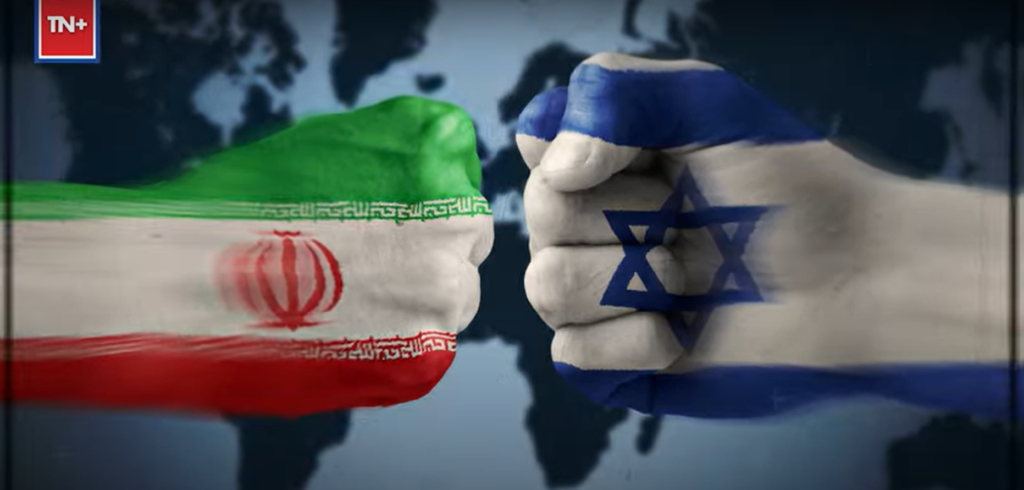In the midst of accelerated negotiations between Iran and the US on the nuclear issue, Israel has established a new “red line” in response to the Iranian threat.
According to a senior political official in Jerusalem, Israeli military action against Iran’s nuclear facilities will be implemented if Iran surpasses a uranium enrichment level of 60 percent.
On June 15th, Defense Minister Yoav Galant met with American Defense Minister Lloyd Austin in Brussels, where he received details about the ongoing contacts between Iran and the United States.
It appears that both sides are progressing towards a new deal, which may include the release of prisoners, the unfreezing of Iranian funds in the West, concessions on Iran’s oil exports, and a commitment from Iran not to enrich uranium beyond 60 percent.
The US also demands that Iran cease selling missiles and drones to Russia, and that its affiliates stop attacking American soldiers stationed in Syria.
It remains unclear whether the US will request that Iran transfer the amount of uranium it has already enriched to a third party until the expiration of the original 2015 nuclear agreement in 2030.
Israel seems to have lost its ability to influence the US in the negotiations with Iran due to the strained relationship between the White House and Prime Minister Netanyahu. Furthermore, President Biden’s refusal to invite Netanyahu to the White House has further contributed to this loss of influence.
The Americans maintain that diplomatic means are their preferred approach to preventing Iran from acquiring nuclear weapons. However, Iran has already reached the status of a nuclear threshold country, possessing enough enriched uranium to produce multiple nuclear bombs. According to Israeli intelligence, Iran could potentially develop nuclear weapons within the next one to two years.
Prime Minister Netanyahu has repeatedly emphasized that any agreement reached between world powers and Iran will not bind Israel.
Israel is concerned that the US has not condemned Iran for its series of violations of the 2015 nuclear agreement, nor has it imposed new sanctions on Iran.
US State Department spokesman Matthew Miller stated on June 15th that the US’s policy is to ensure that Iran does not obtain a nuclear weapon, emphasizing that diplomacy is believed to be the most effective means to achieve this goal.
While the US operates discreetly behind the scenes, Israel is not regularly updated on the details of the negotiations between the US and Iran, relying primarily on its intelligence system to assess the situation.
Iran is demanding the release of hundreds of billions of dollars of its frozen funds held abroad.
The administration prefers to refer to the new contacts with Iran as “understandings” rather than an “agreement,” as this avoids the need for approval from Congress. It is expected that both the Republican Party and some members of the Democratic Party will strongly oppose a new agreement with Iran.
Senior American officials indicate that President Biden’s focus is currently on the conflict in Ukraine, and he wishes to avoid a regional war in the Middle East. However, it is not denied that he is also interested in achieving a diplomatic victory ahead of the US presidential elections.
Iran refers to the talks with the US as negotiations for a “political ceasefire.” If new understandings are reached between the US and Iran, it may allow both sides to gain time to work towards a new nuclear agreement in the future.
Iran’s Supreme Leader, Ali Khamenei, recently expressed readiness for a new agreement on the condition that it does not undermine Iran’s current achievements in the nuclear field. Iran understands that it may face significant consequences for enriching uranium to a military level of 90 percent.
New understandings between Iran and the US will strengthen Iran’s economic and military power. However, they will not resolve the nuclear threat, as Iran will continue its efforts to develop a nuclear bomb while bolstering its ballistic missile project and supporting its affiliates in the Middle East with the funds received.
A senior political official in Jerusalem emphasizes that Iran’s progression towards enriching uranium to a military level of 90 percent would officially acknowledge its intention to develop nuclear weapons. This represents a red line for Israel, necessitating action.
As of now, Iran’s Supreme Leader, Ali Khamenei, has not made a decision to enrich uranium to a level of 90 percent.
Israeli and Western intelligence agencies continue to closely monitor the situation.




